As we get deeper into the fall movie season, October—per usual—delivers some of the most essential films of the year. As much of the cinema-related excitement is owed to the New York Film Festival, many of the finest in this year’s slate will begin their limited releases this month, while other favorites from earlier in the festival year also start rolling out. See our top picks below.
15. Onoda: 10,000 Nights in the Jungle (Arthur Harari; Oct. 7)

The opening title of Un Certain Regard at Cannes last year, Arthur Harari’s epic adventure Onoda: 10,000 Nights in the Jungle will finally hit U.S. theaters this week. Following the true story of a Japanese soldier who refused to believe that World War II had ended and continued to fight on a remote Philippine island until 1974, there’s been much acclaim for the nearly three-hour film; we’re looking forward to finally catching up with it.
14. Brainwashed: Sex-Camera-Power (Nina Menkes; Oct. 21)

After watching thousands of hours worth of cinema, what filmmaking techniques are ingrained to the form that lead to disempowering and objectifying women? Using examples from Martin Scorsese’s Raging Bull, Spike Lee’s Do the Right Thing, Sofia Coppola’s Lost In Translation, Denis Villeneuve’s Blade Runner 2049, Abdellatif Kechiche’s Blue Is the Warmest Color, and much more, Nina Menkes digs deep to unpack the precise directorial decisions––some perhaps even subconscious––that have led to women being diminished throughout cinema history. It opens on October 21 courtesy Kino Lorber. David Katz said in his review, “It’s interesting, still, that Nina Menkes, a radical American independent filmmaker, has chosen to take up this mantle of something so pedagogic, when her own slippery and ever-mysterious films (such as Queen of Diamonds and Phantom Love) are not. But it does clarify, with the articulacy of a really good film-studies seminar leader, what was bubbling beneath the eerie surface of those works. Criticism can be poetry, but in Brainwashed: Sex-Camera-Power it is definitely prose, reserving the expressiveness for her own oeuvre.”
13. Triangle of Sadness (Ruben Östlund; Oct. 7)

While Ruben Östlund can never really best the first few scenes of his 2.5-hour comedy of capsized class dynamics amongst those with unfettered wealth, Triangle of Sadness chugs along with just enough juice to instill hope the director may yet return to the greatness of Force Majeure. As Rory O’Connor said in his review, “Following a Palme d’Or win for The Square, the Swedish filmmaker returns to Cannes in competition, and if the contemporary art scene had taken the brunt of that sometimes brilliant, sometimes baggy film (the rare example of an art satire that actually worked), his latest has both the fashion world and the 1% solidly in its sights. With a title derived from an industry term for the worry lines on a person’s forehead, Triangle of Sadness is a film as vast as the sea itself, Östlund’s first real epic. It is his White Lotus, his “wafer-thin mint,” and his Discreet Charm of the Bourgeoisie rolled into one: a scatological rinsing of wealth and hubris from a filmmaker who, with each passing effort, only further cements himself as contemporary cinema’s auteur of such things.”
12. Wendell & Wild (Henry Selick; Oct. 21)
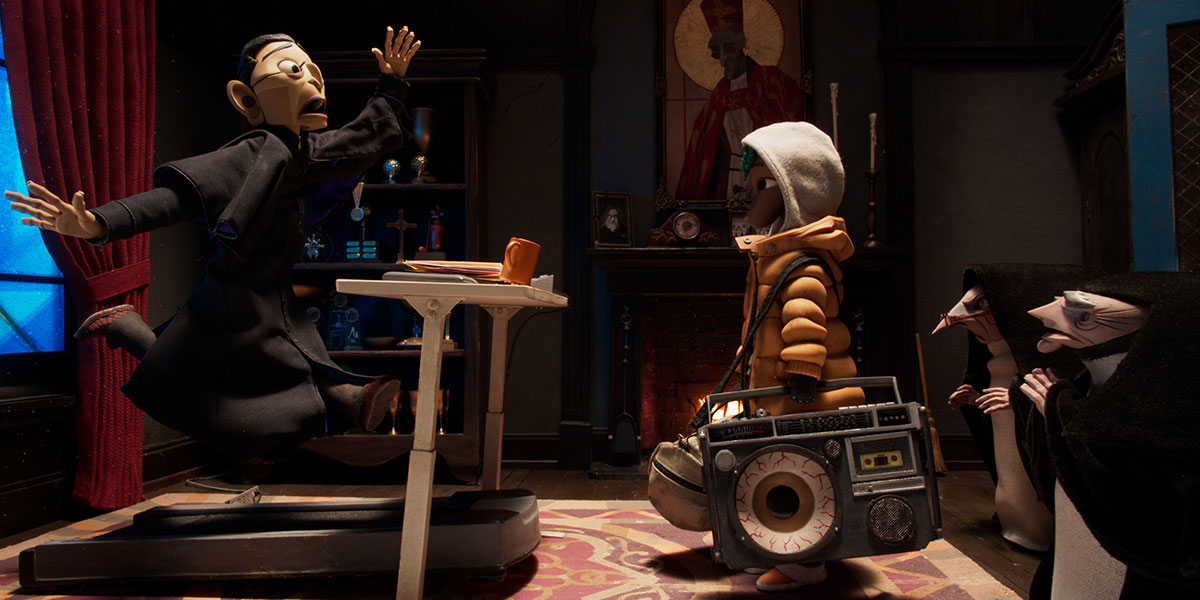
The Nightmare Before Christmas and Coraline director Henry Selick is back at long last, teaming with Keegan-Michael Key and Jordan Peele for Wendell & Wild. One of the few Halloween-related offerings worth paying attention to, this story of two demon brothers who must face their arch-nemesis seemed to get quite a cool response at TIFF, but here’s hoping it’s another imaginative adventure from Selick.
11. Dark Glasses (Dario Argento; Oct. 7)
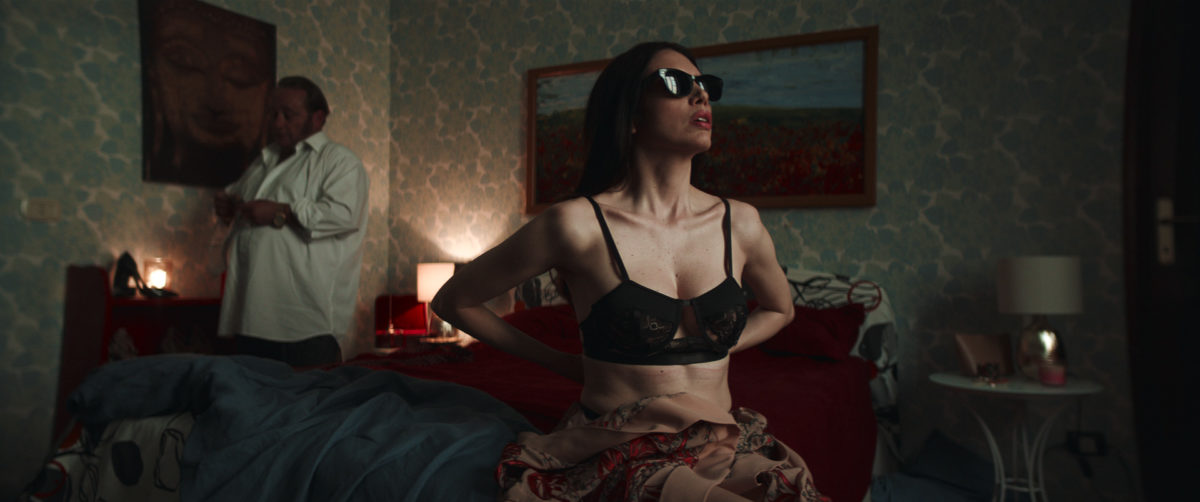
Marking his first film in a decade, Dario Argento is playing the hits for Dark Glasses, an entertaining if slightly murky thriller. As Rory O’Connor said in his review, “As you watch Dark Glasses, Dario Argento’s first film in a decade, it’s nice to think back on his recent performance as the aging film critic in Gaspar Noé’s Vortex—a man who wistfully quoted Edgar Allen Poe’s theories on dreams as he wandered through an apartment covered with canonical posters and movie detritus—only to look back up and see the blind protagonist of his latest film, and the young Chinese boy who has become her valet, attacked by a pack of unruly river snakes. Yes, Dario Argento’s first film in ten years is pretty fun, for a while—and no, not near his best.”
10. Till (Chinonye Chukwu; Oct. 14)
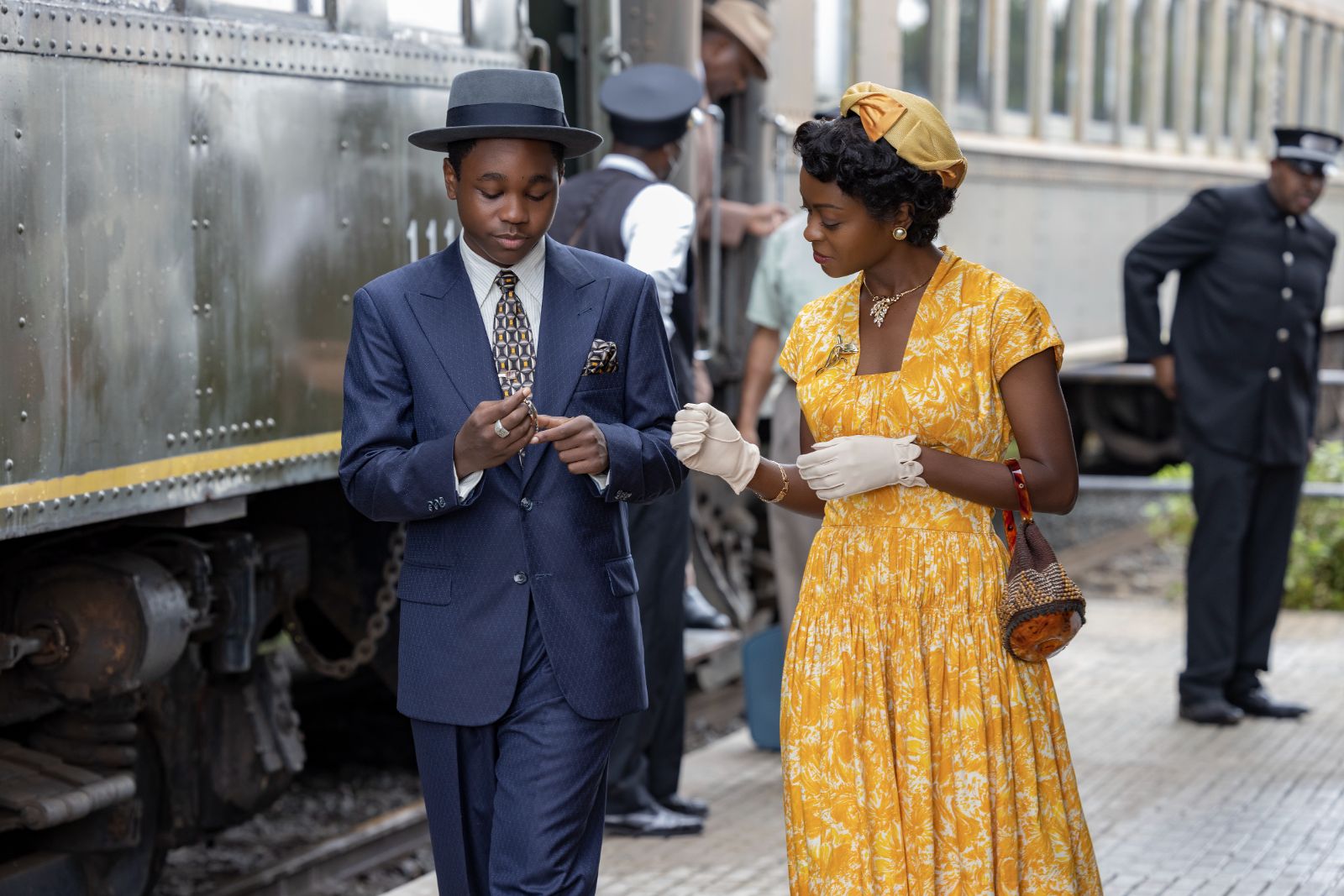
Clemency director Chinonye Chukwu avoids quite a lot of dramatic pitfalls with her carefully considered treatment of Emmett Till and Mamie Till’s horrific story. Without ever coming across exploitative or manipulative, every moment feels like a graceful, thoughtful choice in telling this story of how tragedy can inform a life of activism. With clear-eyed direction, Chuwku conveys everything she needs to in the most impactful shot possible, centering an incredible Danielle Deadwyler in nearly every frame. As we see her grapple with all the potential life she would have with her son now lost, and her resilience in speaking out, Till becomes a powerful portrait of continuing a fight for justice wherein your soul will never truly be healed. Chukwu also insightfully captures what it means to politicize a tragedy, both for those involved and the outside world.
9. Stars at Noon (Claire Denis; Oct. 14)

It’s now evident that smaller projects Claire Denis completes while waiting for her larger-scale ones to get off the ground are more artistically satisfying (see: Let the Sunshine In and this year’s Both Sides of the Blade). But a new work from the French auteur is still one to seek out. Her Cannes winner Stars at Noon, starring Margaret Qualley and Joe Alwyn, adapts Denis Johnson in a sweaty, captivating, and (yes) occasionally aimless tale of strangers in a strange land. Per David Katz’s review, “It’s intriguing for a long-term fan of a director, perhaps even one whose films you’ve grown up alongside the last decade or two, to watch them stumble slightly. But for Claire Denis, the remarkable auteur in question, even her strongest works can have a teetering, tentative quality, as if you were discovering the dawning narrative and emotional progression in tandem with her.”
8. The Novelist’s Film (Hong Sangsoo; Oct. 28)

A tradition that has become more familiar (and anticipated) than most holidays on the calendar, a new Hong Sangsoo movie will arrive in theaters––the second U.S. release this year and one of two new premieres in 2022. The Novelist’s Film is a quaint, humorous, heartfelt look at the life of creatives. As Rory O’Connor said in his review, “Hong’s dialogue is as spiky and self-reflexive as ever. After cursory greetings and compliments (someone, of course, tells Kim’s character how pretty she is), many conversations between Junhee and the people she meets become edgy, full of barbed comments brought on by a litany of small and big disappointments.”
7. The Banshees of Inisherin (Martin McDonagh; Oct. 21)
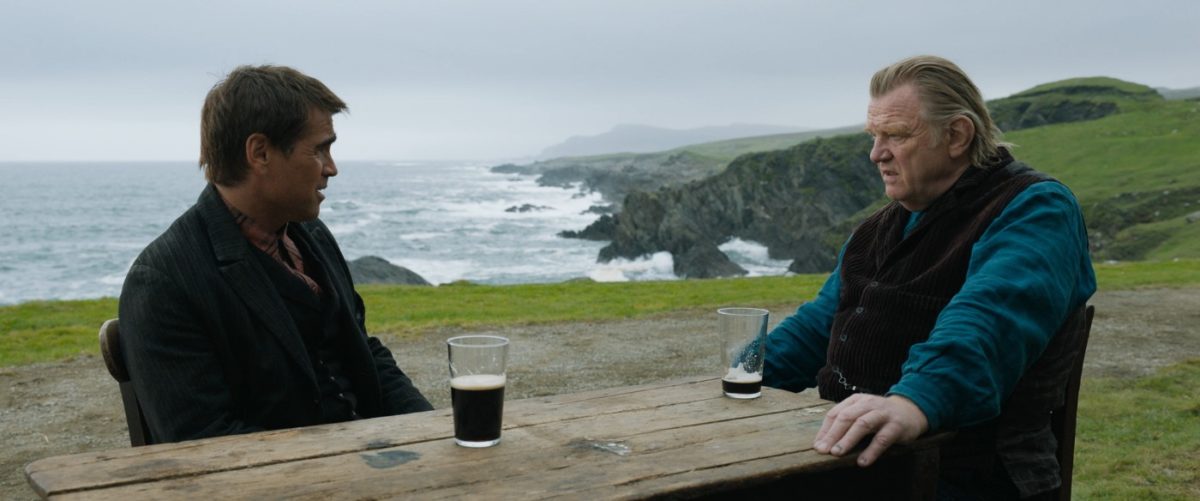
After Seven Psychopaths and Three Billboards Outside Ebbing, Missouri brought him to America with a divisive reaction, British-Irish filmmaker Martin McDonagh returned to Europe for his next feature and brought his two In Bruges stars with him. The Banshees of Inisherin (starring Brendan Gleeson and Colin Farrell) also marks a return to form. Luke Hicks said in his review, “Banshees is McDonagh’s A Straight Story, but he doesn’t go full monty. He works in a few comically violent McDonagh beats that rip us out of the ordinary. But it’s the permeating sense of normality, routine, and unremarkableness that gives them their punch. To note the simplicity, he opens on a white screen with a glowing white font. (Why does that feel like a theater-director move?)”
6. Descendant (Margaret Brown; Oct. 21)
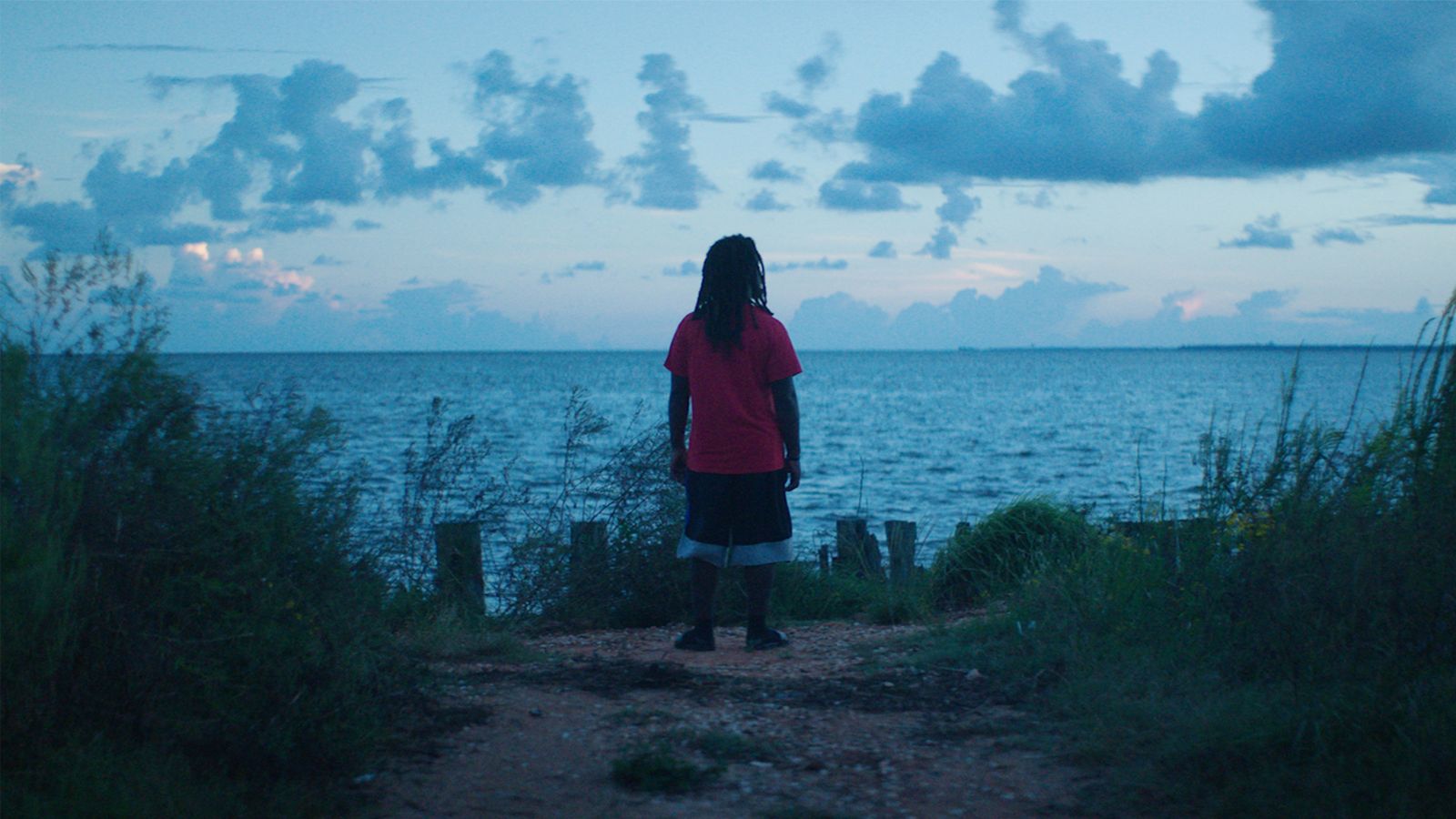
Over half a century after international slave trade was abolished in the United States, Timothy Meaher made a bet that he could transport a ship of captives from Africa to the Alabama coast. As owner of the ship The Clotilda, following the 1860 voyage which brought 110 people from West Africa to Mobile, Meaher covered up his crimes (which could have brought him to death) by burning and sinking the vessel. More than 150 years later, Mobile’s Africatown community––made up of direct descendants whose ancestors were ripped away from their lives of freedom––are searching for truth and closure as remnants of the slave ship remained a buried mystery. As captured in Margaret Brown’s intimate, powerful documentary Descendant, the quest for answers and the story of how this overlooked community has been marginalized throughout history has ripples far beyond a sunken ship. Continue reading my full review.
5. Armageddon Time (James Gray; Oct. 28)
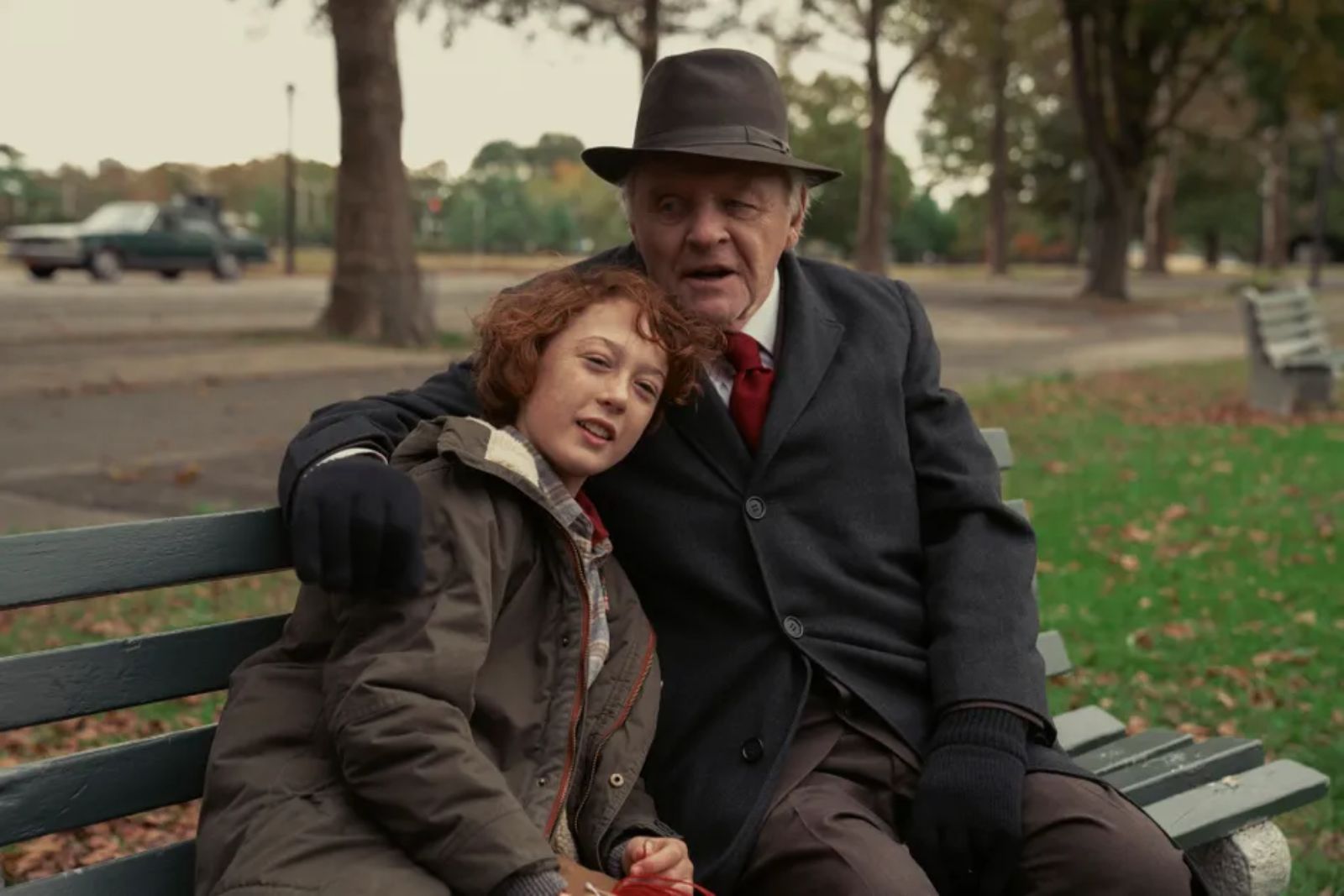
After searching for treasure in the Amazon and venturing to the far reaches of the galaxy, James Gray is returning home. Armageddon Time finds the director telling a partially autobiographical story as it relates to the life of Jewish family growing up in 1980s Queens. As David Katz said in his review, “It finds the specific in micro-gradations of the specific rather than suggest one family’s struggle represents anything more than itself. It’s a deeply observed New York story airing a middle-class Jewish family’s dirty laundry for all to see. The relevance of bringing up these more symbolic family struggles (also present in a certain mode of American literary fiction, e.g. Philip Roth and John Updike) is this: Armageddon Time could well be one in a lesser guise, but what the film, in its sometimes-awkward yet deeply sincere way, is about is realizing the limits of one’s perception, or of how a self-portrait disregards the wider world beyond its frame.”
4. Decision to Leave (Park Chan-wook; Oct. 14)
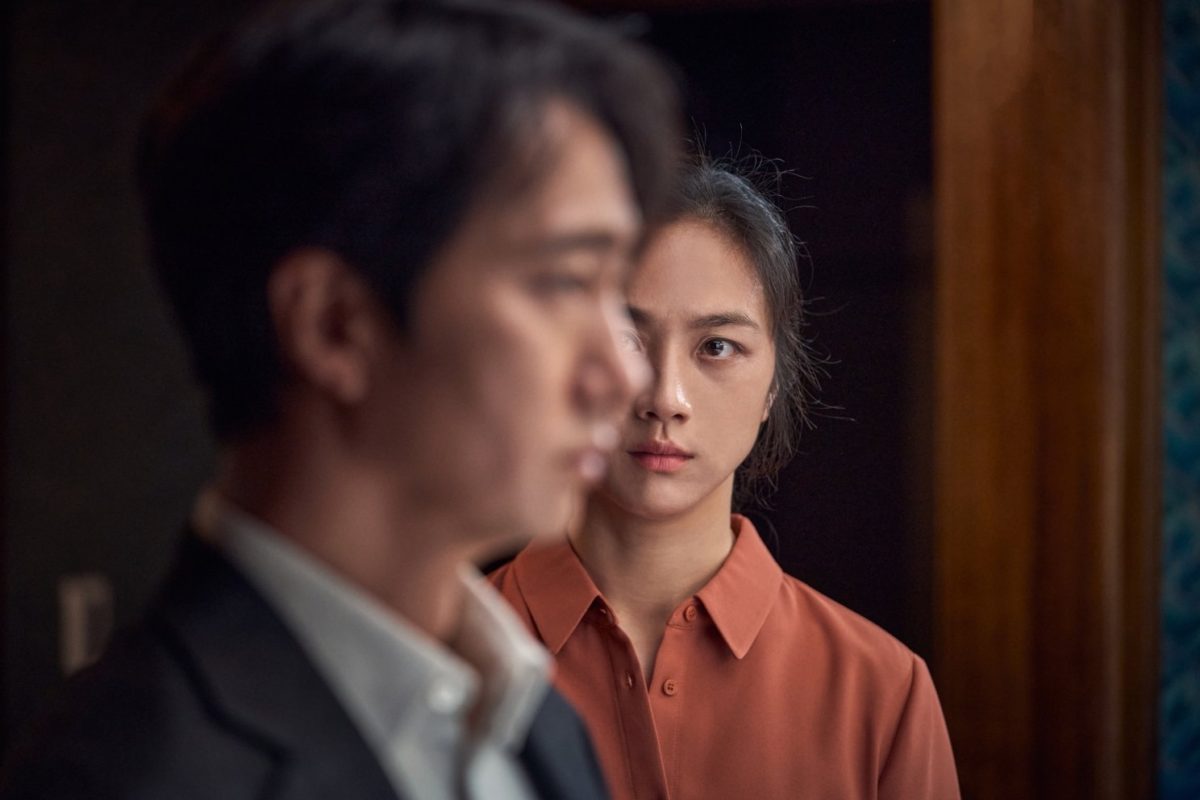
Leave it to Park Chan-wook to return to feature filmmaking after six years and show everyone how it’s done. A deserved Best Director winner at Cannes, he spins a delightfully nimble romantic crime thriller with Decision to Leave, which is replete with fascinating formal choices. Luke Hicks said in his review, “Decision to Leave isn’t the kind of movie that benefits from too much plot description. Not for fear of spoilers. If anything it’s a wolf in sheep’s clothing, giving plotless meandering mood films a run for their money in a new genre. It’s a movie that keeps you guessing until you realize you’ve over-guessed. It could make a frustrating experience for some, but take a thematic cue from the dense ocean mist that characterizes Ipo and the futility of guessing sinks in: answers are as plain as they seem.”
3. All That Breathes (Shaunak Sen; Oct. 21)
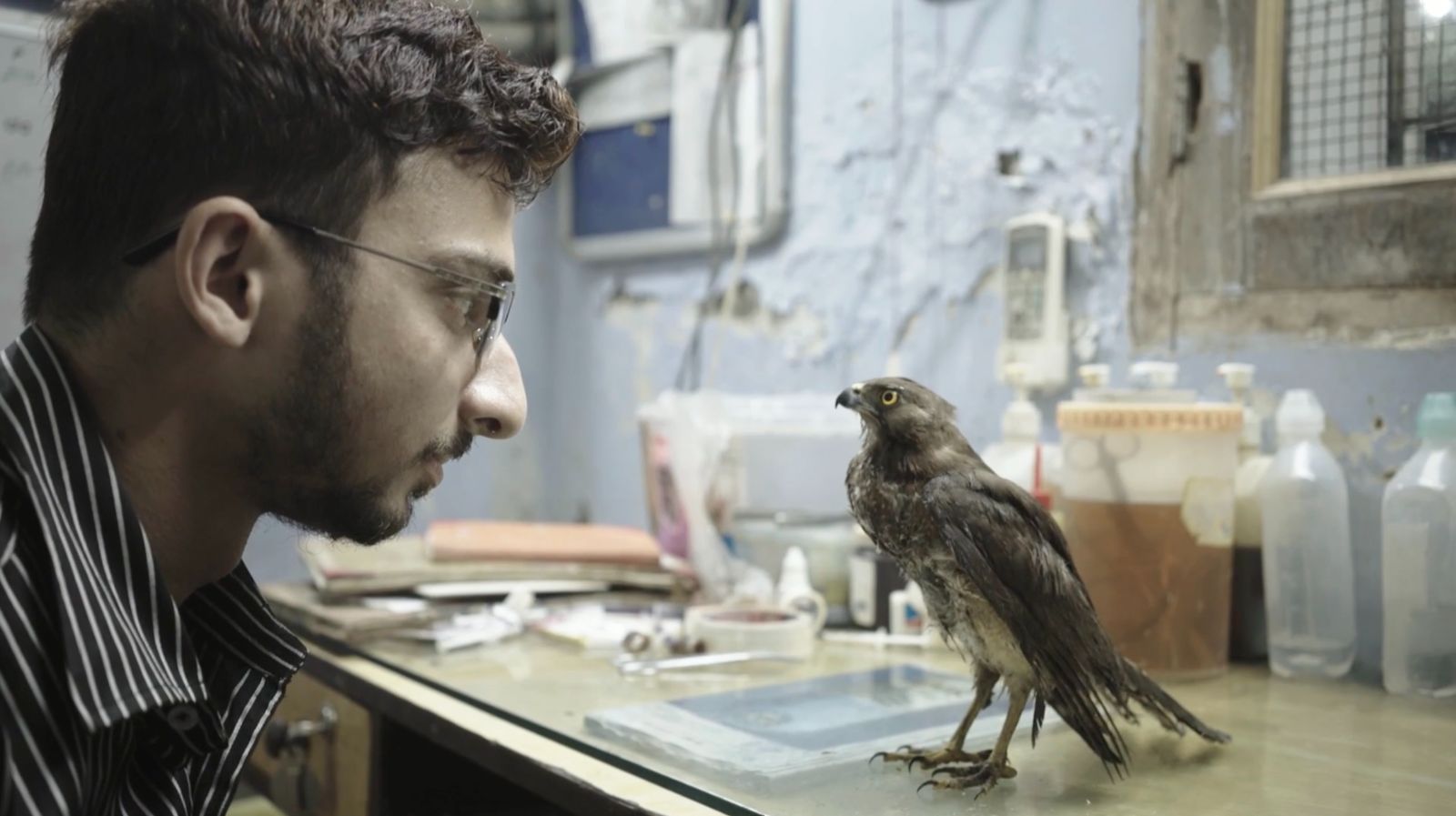
The best film to premiere at Sundance––and the year’s top documentary––finally arrives this month. Alistair Ryder said in his review, “The focal point of All That Breathes is brothers Nadeem Shehzad and Mohammad Saud, who, alongside volunteer Salik Rehman, operate Wildlife Rescue. Their central aim is helping house the protected avian species in Delhi, namely the Black Kites. Over the years their charity has helped treat more than 20,000 birds, the group roaming across the breadth of the city to treat any injured species they can find. They previously received international attention for their efforts, including a 2020 New York Times profile referenced here, but much of their work is impeded by the struggle to receive international funding. This is largely due to other political developments at home, and events in this film coincide with the right-wing populist government’s attempts to prevent people of Muslim descent from migrating to the country––an act of religious bigotry that goes against India’s constitution. A tidal wave of Islamophobia is on the horizon, the brothers fearful because of their own religious backgrounds.“
2. TÁR (Todd Field; Oct. 7)
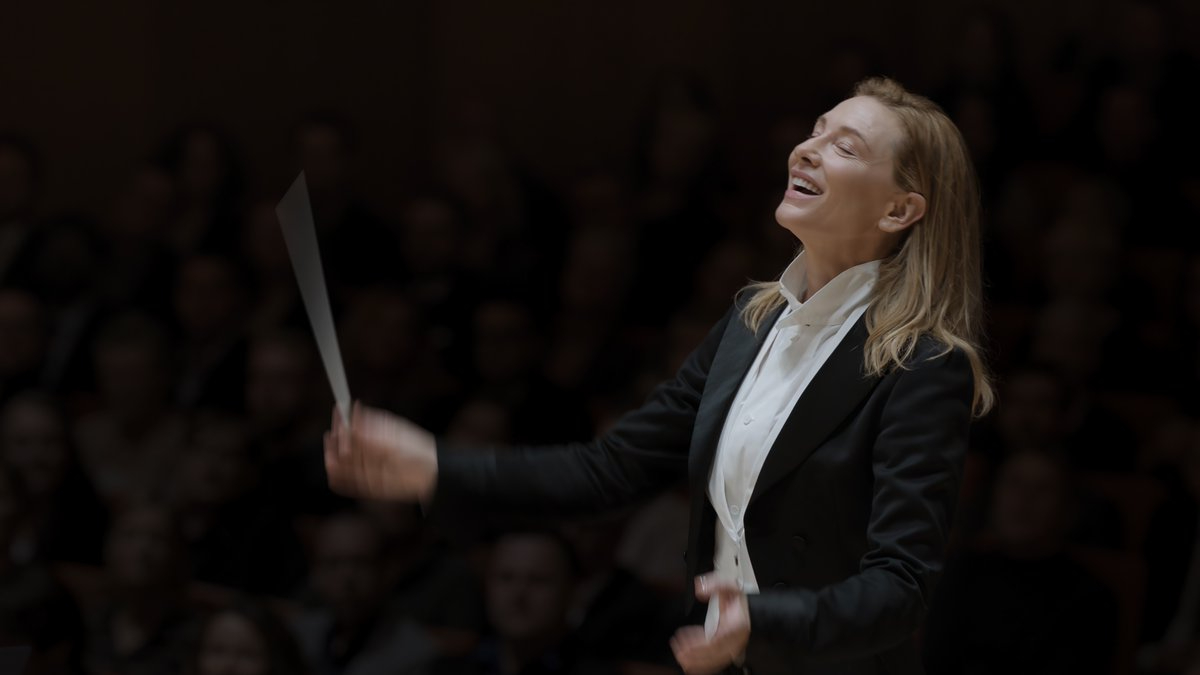
Well, it was worth the wait. Sixteen years after his last feature, Little Children, Todd Field finally returned with TÁR, a meticulously designed actor’s showcase that provides Cate Blanchett perhaps her greatest role yet. In exploring contemporary issues without ever feeling like he’s missing a beat––instead coming across ahead of the curve––Field’s Berlin-set drama is a fascinating odyssey through the unraveling of power. As Rory O’Connor said in his review, “TÁR is an effort of tremendous skill and restraint, beginning with a confidence bordering on arrogance and building to a brilliant crescendo—only after that first act do the best things begin to surface, the compelling energy of ruthless ambition and the unmistakable, delicious hum of dread.”
1. Aftersun (Charlotte Wells; Oct. 21)
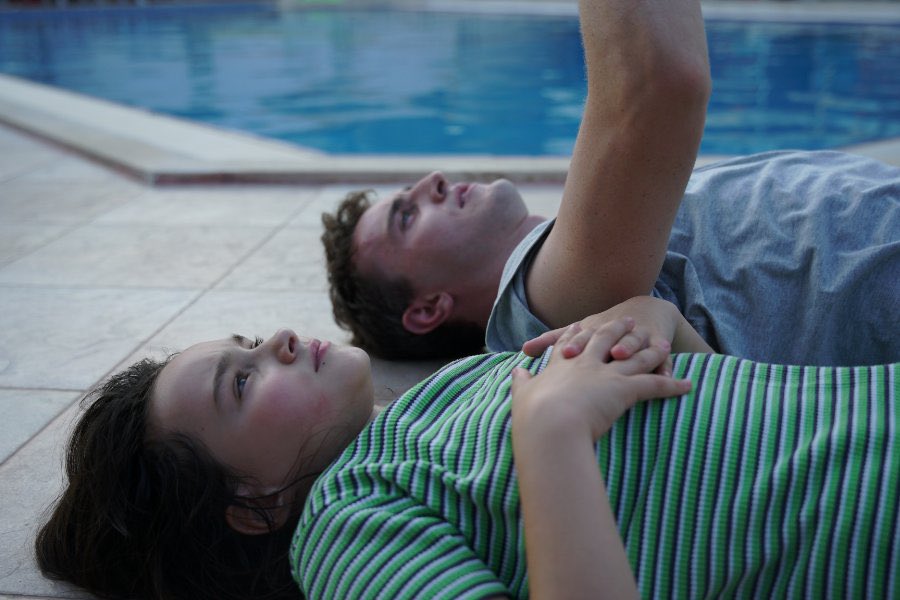
A directorial debut of staggeringly impressive form with a wallop of an ending, Charlotte Wells’ Aftersun completely broke me. Paul Mescal and Frankie Corio play a father and daughter, respectively, who vacation to a resort in Turkey where tenderness and pain converge. Rory O’Connor said in his review, “Aftersun is a triumph, both a rich sensory experience and impossibly sad. It’s also one of the best debuts to play at the Cannes Film Festival in years, selected in the Critic’s Week sidebar, where it won the jury prize.”
More Films to See
- Last Flight Home (Oct. 7)
- Piggy (Oct. 14)
- Ticket to Paradise (Oct. 21)
- Call Jane (Oct. 28)
- Holy Spider (Oct. 28)
